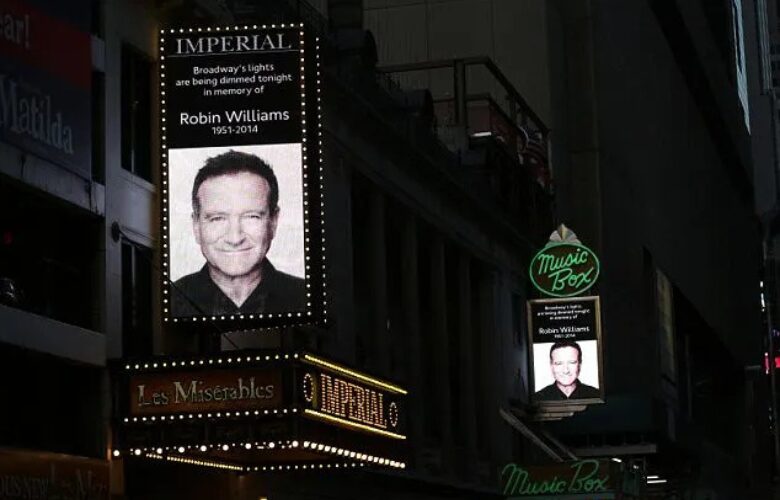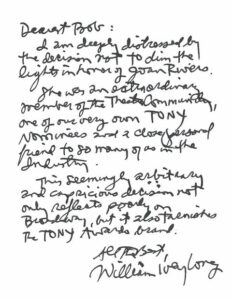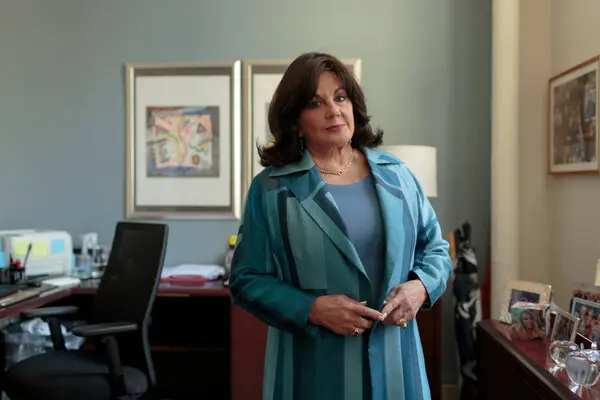Once Again the Broadway League Is Out of Touch With the Theater Community

The ritual of dimming lights on Broadway to honor deceased artists has long been seen as a sacred tradition, a brief and poignant moment when the bustling Theater District comes together to recognize a loss in its ranks. But in recent years, the practice has sparked controversy as the Broadway League—the trade association made up of theater owners and producers which oversees such decisions—has tightened its criteria for who gets this honor. Earlier this year, for example, nine theaters were originally going to honor three-time Tony Award winner Hinton Battle by dimming their lights a month after his passing. That was until a passionate outcry resulted in all theaters going dark. And now the recent passing of Broadway icons Gavin Creel and Ken Page has reignited the debate, and once again many are questioning why only select theaters will participate in dimming the lights for these beloved figures.
To understand the current frustration, let’s look back at the origins of this tradition. According to The New York Post and Time magazine, the practice of dimming the lights began in the 1950s, with the first tribute occurring for Gertrude Lawrence in 1952 after her death during the run of The King and I. The second honoree was the legendary lyricist Oscar Hammerstein II in 1960, with the actor Alfred Lunt following in 1977. Since then, the tradition has expanded to include actors, directors, playwrights, and even journalists and designers. But despite its long-standing history, the Broadway League holds the keys to this somber tradition, and their decisions have often left theater fans and industry insiders scratching their heads.

Joan Rivers, for instance, was originally denied the honor in 2014 because she didn’t fit the League’s seemingly arbitrary criteria. After an outcry from actors like Audra McDonald and Harvey Fierstein, designers like William Ivey Long, and a massive online campaign (#Dim4Joan), the League eventually reversed its decision, begrudgingly admitting they had “misjudged” the situation.
William Ivey Long’s handwritten note in favor of honoring Joan Rivers, which was sent to Robert E. Wankel, the president of the Shubert Organization, which owns 17 Broadway theaters.

Dearest Bob:
I am deeply distressed by the decision not to dim the lights in honor of Joan Rivers. She was an extraordinary member of the theater community, one of our very own Tony nominees and a close personal friend to so many of us in the industry. This seemingly arbitrary and capricious decision not only reflects poorly on Broadway, but it also tarnishes the Tony Awards brand.
All the best,
– William Ivey Long
It was Charlotte St. Martin, then president of the Broadway League, who infamously oversaw that decision. Under her leadership, the League’s committee chose who was “worthy” of being honored. For Rivers, the initial denial was chalked up to her not being a regular fixture on Broadway—a wild assertion for someone who earned a Tony nomination and spent decades as an enthusiastic supporter of the community. Another example came in 2018, when five-time Tony nominee Jan Maxwell was honored with only one theater dimming its lights, while Tony Award nominee and Theater Hall of Fame inductee Marin Mazzie was remembered by six theaters. It makes you wonder, how exactly is the value of an artist determined by this elite group?
That question becomes even more charged when you consider St. Martin’s controversial comments during the COVID-19 pandemic, where she suggested that show cancellations were partly due to “inexperienced” understudies who weren’t as “efficient” as the lead actors. This remark sparked outrage across the industry, as it unfairly placed blame on those very performers who were keeping productions afloat during widespread illness and absences. Though she eventually apologized, the comment reflected a dismissive attitude toward the essential, often unsung, contributors to Broadway—an attitude that echoes in the League’s selective decisions on who is deemed worthy of public tribute.

Fast forward to the present, and St. Martin may have stepped down as president, but the Broadway League’s missteps continue with the passing of two more giants of the stage. Gavin Creel received a Grammy Award, Tony Award, Drama Desk Award and Laurence Olivier Award during his professional career, and Ken Page won a Drama Desk Award, a Theatre World Award, and was the original Old Deuteronomy in Cats. Yet once again only a select number of theaters will dim their lights in their honor. The League’s justification? They leave these decisions to the theater owners. But isn’t that part of the problem? Instead of creating a collective moment of respect and recognition, they’ve turned it into a matter of select participation, allowing the theater-owning organizations—like the Shuberts, the Nederlanders, and Jujamcyn—to decide on their own. The result is a disjointed, half-hearted tribute that feels more like an afterthought than a true honor.
The League’s reluctance to expand the practice and instead simply react to controversy, reveals a deeper flaw in how they view the theater community. It’s as if they’ve forgotten that Broadway is built on collaboration—from the actors to the stagehands to the understudies who fill in at a moment’s notice. If the Broadway League truly cared about its community, they’d embrace this tradition fully. They’d recognize that theater isn’t just about the headliners—it’s about everyone who contributes to bringing those stories to life. The dimming of lights should be a more standardized tradition, instead of a selective privilege.
It’s time for them to stop gatekeeping grief and start honoring those who have shaped the world’s greatest stage, without needing to pass some invisible popularity test. Until then, the dimming of Broadway’s lights will remain a symbol of a larger issue within the industry: who gets remembered, who gets forgotten, and who gets to decide.
Back to Home
Editor's Note: At StageLync, an international platform for the performing arts, we celebrate the diversity of our writers' backgrounds. We recognize and support their choice to use either American or British English in their articles, respecting their individual preferences and origins. This policy allows us to embrace a wide range of linguistic expressions, enriching our content and reflecting the global nature of our community.
🎧 Join us on the StageLync Podcast for inspiring stories from the world of performing arts! Tune in to hear from the creative minds who bring magic to life, both onstage and behind the scenes. 🎙️ 👉 Listen now!
